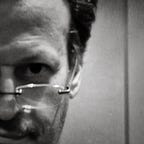Scientism and Drying Sheets
According to Wikipedia, “Scientism is the opinion that science and the scientific method are the best or only way to render truth about the world and reality.” I agree with this, even though many people think scientism is a joke.
Here’s an example, from my own experience, of how the application of scientific thinking has benefitted me in “everyday life.” I contend that examples like this support the notion that using scientific reasoning in real life is beneficial.
I’m in charge of washing and drying the bedsheets. For many years, I would load wet sheets into our dryer by trying to spread them out as much as possible. Why I did that, I don’t know. Perhaps it was subconsciously noticing how my mother hung things on our clothesline when I was a kid. Perhaps it was a (naive) sense of the physics of it — the bigger the surface area of cloth exposed, the faster it will dry.
In any case, I was doing it wrong.
I know this because at the end of the drying cycle I found that the sheets would always be balled up, one inside the other, often nested four of five sheets deep. And the inner two or three sheets were still wet, necessitating another drying cycle.
Eventually, I became so frustrated with the situation that I decided I had to fix it somehow.
I could split the loads in two, but that would still be two dryer cycles. I was trying to save energy (and time), so I was interested in exploring other options.
The “easy” solution is to buy a new dryer. But that’s just capitulating to unthinking consumerism and environmental arrogance. Our dryer is relatively new and certainly functional; there’s no reason to dump it.
We already use dryer balls, but I knew from research I was involved with that dryer balls don’t work with large items. I had also done all the usual — and even some unusual — maintenance: cleaned the lint trap, disconnected and cleaned out the exhaust duct; I even shortened the duct by about a half-metre, and made sure there were minimal bends in the duct when I installed it again. But none of these interventions helped to dry the sheets.
So, I had a machine that nested and balled up sheets. This was a physical behaviour of sheets in that dryer. It had happened every time I used it. Whatever physics was going on inside the dryer, was fixed.
In particular, the dryer balled up materials that were not already balled up. I mean, what could it do to materials that were already balled up? And if the sheets were already balled up when I put them in the dryer, they oughtn’t nest one inside the other — which was a key feature of the problem: only the innermost sheets remained damp.
So I hypothesized that if I balled up the sheets before putting them into the dryer, then the dryer couldn’t nest them. Since the outermost of the nested sheets were dry, it stood to reason that a single bedsheet might be properly dried even if it were balled up.
It was time for an experiment. One day, I tried balling the wet bedsheets up, quite tightly, as I put them in the dryer.
Success! All the sheets came out dry. And they kept coming out dry every time I balled the bedsheets before putting them in the dryer. And if someone else did the sheets, and didn’t ball them up, they would come out nested and damp.
I don’t know if this trick will work in other dryers, but I do know it works in my dryer. And that’s what matters here.
In other words:
- I made multiple observations of a specific phenomenon.
- I leveraged my existing scientific knowledge to hypothesize an experiment.
- I performed the experiment multiple times to satisfy myself the effect was real.
- I drew a conclusion based on the experimental results.
- I remain open to this day to the possibility that some other factor — something I’ve yet to notice — can explain the effect better than the explanation I have so far.
This is the scientific method — albeit in a relatively naive and qualitative form.
Some will argue that I’m treating a trivial example here, and that where scientism — and science itself — fails is in dealing with “deeper” questions of philosophical import. Questions like “What’s the meaning of life?” Someday I’ll write about that too, and how silly that question is, and that “How do I dry my clothes?” is a question much more worthy of our time and effort.
See, scientism isn’t about solving a surface integral in 7 dimensions to decide what to have for lunch. It’s about letting the principles of the scientific method become embedded in your life so that it becomes a natural and automatic way to think and make decisions. It won’t be perfect — nothing is perfect. But it’s better than the alternatives.
